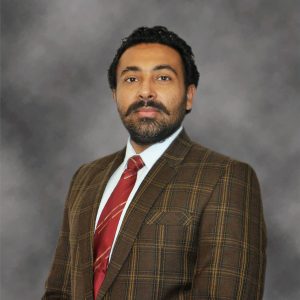Published on
Updated on
A transdisciplinary team of researchers, educators and extension experts has received a $10 million grant from the U.S. Department of Agriculture (USDA) to advance and co-create solutions to climate resilience of farmers in the Midwest. Led by The Ohio State University, the project will involve close partnerships with researchers, extension staff and students at Central State University, the University of Missouri, Lincoln University, and Solutions for the Land.
Gurbir Singh, assistant professor in the College of Agriculture, Food and Natural Resources’ Division of Plant Science and Technology and state extension specialist in soil science, agroecology and landscape management, is the lead investigator on the project for Mizzou.

Great gains have been made in efficiency and productivity with specialized crop and livestock production in the US, but with these gains, there have been declines in soil health and organic matter, water quality challenges, loss of biodiversity and increased vulnerability to extreme weather events.
Emerging climate-smart agricultural practices (CSAPs) show the potential to reduce greenhouse gas emissions and increase carbon sequestration, climate resilience and farm viability. However, traditional top-down approaches to boost adoption have been slow. This project focuses on working with farmers ‘From the Ground Up’ to overcome barriers and find innovative approaches that can accelerate their use on Midwest farms.
The project is funded through USDA’s flagship Sustainable Agricultural Systems program and is led by Douglas Jackson-Smith, professor and Kellogg Chair of Agroecosystem Management in the College of Food, Agricultural, and Environmental Sciences (CFAES) at The Ohio State University.
“This is an unprecedented investment by the USDA in a farmer-led response to address water quality and carbon sequestration challenges in agriculture,” said Jackson-Smith. “We’ll be engaging farmers in Ohio and Missouri, major farm states with diverse biophysical contexts where the impacts of climate variability on CSAP performance can be compared across time and space. With this investment, we will spur innovation clusters where farmers themselves identify and overcome logistical, agronomic and economic barriers that make it difficult for them to use conservation practices. We believe farmer leadership through collaborative on-farm research and peer-to-peer learning networks are key to finding realistic solutions that really work on the farm.”
“Proven conservation practices on small-scale research do not always make sense for on-farm adoption due to the logistics of the farming operations,” said Singh. “Changing management practices can lead to an increase or decrease in on-farm revenues.”
At the University of Missouri, this project will be co-led by an interdisciplinary team of sociologists and economists (Theodore Skevas and Ben Brown), agronomists, soil scientists and crop physiologists (Justin Calhoun, Gurbir Singh and Felix Fritschi), and remote sensing and systems modelers (Noel Aloysius).
In addition to empowering farmers to lead the design and innovation of practical approaches to climate-smart farming, the project will provide opportunities to train the next generation of students in the use of on-farm research and community stakeholder collaborations as strategies to address future farming system challenges.